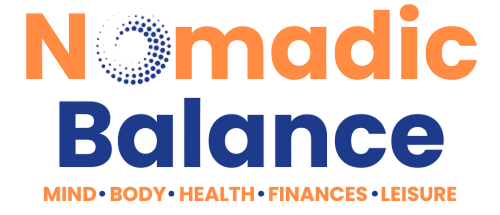Happiness is a universal goal, but what truly makes people happy? Is it wealth, success, relationships, or something deeper? Science has been studying happiness for decades, and researchers have discovered key factors that influence our well-being. In this article, we will explore the science behind happiness and practical ways to incorporate it into daily life.
What Is Happiness?
Happiness is more than just a fleeting emotion—it is a state of well-being that involves positive emotions, life satisfaction, and a sense of purpose. According to psychologists, happiness can be divided into two main types:
- Hedonic Happiness – The pursuit of pleasure and enjoyment, such as eating good food, traveling, or buying something new.
- Eudaimonic Happiness – A deeper, more lasting happiness that comes from personal growth, meaningful relationships, and a sense of purpose.
A truly fulfilling life often involves a balance between both types of happiness.
The Science of Happiness: What Studies Reveal
1. The Role of the Brain
Happiness is linked to neurotransmitters in the brain, including:
- Dopamine – The “reward chemical” that gives us motivation and pleasure.
- Serotonin – Associated with mood balance and feelings of well-being.
- Oxytocin – The “love hormone” that strengthens social bonds and trust.
- Endorphins – Released during exercise and laughter, helping to reduce stress and pain.
By engaging in activities that boost these chemicals, we can increase our overall happiness.
2. The Happiness Set Point
Studies suggest that about 50% of our happiness is determined by genetics, 10% by circumstances, and 40% by intentional activities and mindset. This means that while we may have a natural “happiness baseline,” we can actively improve our well-being through habits and choices.
3. The Power of Gratitude
Research shows that practicing gratitude regularly increases happiness and reduces depression. Writing down three things you’re grateful for each day can rewire the brain to focus on positivity rather than negativity.
4. Social Connections Matter
The longest-running study on happiness, the Harvard Study of Adult Development, found that strong relationships are the key to a fulfilling and happy life. People who maintain close friendships, family bonds, and social interactions tend to be healthier and live longer.
Practical Ways to Increase Happiness
1. Practice Mindfulness and Meditation
Mindfulness helps you focus on the present moment rather than worrying about the past or future. Regular meditation has been proven to reduce stress and increase overall well-being.
2. Engage in Acts of Kindness
Helping others boosts happiness levels by increasing oxytocin and dopamine. Simple acts like complimenting someone, volunteering, or helping a friend can enhance well-being.
3. Exercise Regularly
Physical activity releases endorphins, which improve mood and energy levels. Even a short daily walk can make a significant difference in happiness.
4. Spend Time in Nature
Studies show that being in nature reduces stress and increases feelings of joy. Try walking in a park, hiking, or simply sitting outside to absorb natural light.
5. Limit Social Media and Screen Time
Excessive social media use can lead to comparisons, anxiety, and dissatisfaction. Setting boundaries for screen time can help you focus on real-life connections and experiences.
6. Develop a Growth Mindset
People with a growth mindset believe that challenges and failures are opportunities for learning rather than setbacks. This perspective leads to greater resilience and long-term happiness.
7. Pursue Meaningful Goals
Happiness comes not only from pleasure but also from a sense of achievement and purpose. Setting and working toward meaningful goals—whether personal, professional, or creative—enhances life satisfaction.
8. Cultivate Strong Relationships
Invest time in maintaining and deepening relationships with family, friends, and loved ones. Social bonds are one of the most powerful predictors of happiness.
9. Laugh More
Laughter reduces stress, strengthens social bonds, and triggers the release of feel-good chemicals in the brain. Watching a comedy, sharing jokes, or spending time with fun-loving friends can boost happiness.
10. Get Enough Sleep
Quality sleep is essential for emotional balance and mental clarity. A well-rested brain is better at handling stress and experiencing positive emotions.
Final Thoughts
Happiness is not just about luck or circumstances—it is a skill that can be developed through intentional actions and habits. By understanding the science behind happiness and applying these strategies in daily life, you can create a more joyful and fulfilling existence.
Start small—practice gratitude, spend time with loved ones, engage in meaningful activities, and take care of your body and mind. Happiness is a journey, and every step you take brings you closer to a more positive and fulfilling life.

